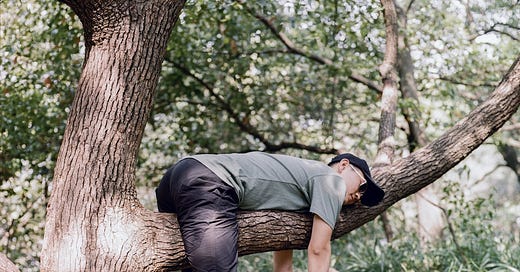Dear Readers,
FC 69 on Happiness, inspired by Einstein’s note, evoked a very warm response. A Vaishnavi, a teenage reader says, “I think that happiness is almost entirely a mindset, and less of an emotion - for example, if you decide that the next day is going to be filled with happiness and contentment, it rarely isn't!”
P A Verghese says, “If there is one common feature that binds us all, it’s the relentless pursuit of happiness. In fact, there is a wonderful novel by that name by Chris Gardner which was made into a movie.”
On this day in 2020, Sean Connery aka James Bond died at the age of 90. At the end of the movie ‘No Time To Die’, M recites the following lines, which were penned by Jack London in 1916:
“I would rather be ashes than dust! I would rather that my spark should burn out in a brilliant blaze than it should be stifled by dry-rot. I would rather be a superb meteor, every atom of me in magnificent glow, than a sleepy and permanent planet. The proper function of man is to live, not to exist. I shall not waste my days in trying to prolong them. I shall use my time.”
Most of you are familiar with Brooke Bond, a tea and coffee company that merged with Hindustan Unilever. Before the merger, I worked for Brooke Bond for about nine years in Bangalore and in those days a joke did the rounds which some of the young readers may not have heard. It goes like this:
Q: Why did actress Brooke Shields refuse to marry James Bond?
A: ‘Cos she did not want people to call her Brooke Bond!
Well, that may not be a cracker of a joke. But then, crackers are no joke either. They are hazardous. Many Indian states have banned the bursting of noisy and polluting crackers. I am sure all my readers would resoundingly agree that the festival of lights should be celebrated quietly, literally so. Deafening silence is better than going deaf and inhaling fumes.
Passivity
Growing up in the 60s was not very exciting for me — at least from the point of exercising my own judgement, making a choice or voicing my preferences. I could not actively participate in any discussion that concerned me and voice my opinions. That my opinions would be considered absurd was a foregone conclusion. I remained passive or was expected to remain passive and accept what the elders thought was good for me. This passiveness continued until I graduated. Or, in other words, until then I was in a state of passivity.
Passivity and Passiveness are synonymous. Both are nouns derived from the adjective ‘passive’. For example, The people remained in passivity during the tyrannical rule of the king, OR the tyrannical rule of the king pushed people into a state of passiveness.
We are all too familiar with how we tend to avoid or defer or procrastinate. If I have to get up early and go for a walk and I see a gentle drizzle outside, I would make that an excuse to go back to sleep. The passivity induced by my lethargy leads to sluggishness all through the day.
Lethargy and inertia are also a form of passive attitude. If someone is unwilling to make the effort to achieve something but is content with the status quo and lets go of an opportunity, then he or she is in a state of passiveness. There’s a saying in Kannada ‘kudure kandare kaalu novu’ - meaning - your legs ache when you see a horse.
I can cite my own experience. In Mumbai when I had to walk about 2 kilometres from Malad station on certain days I would let lethargy overpower the need to be frugal and jump into an autorickshaw. I would rationalise my lethargy by telling myself that I will make up by walking the rest of the month.
Procrastination is another aspect of passivity. We tend to put off doing something by convincing ourselves that we can do it another day. This can sometimes turn out to be dismal. Imagine, for example, that someone is hospitalised and you feel you should visit that person. You tell yourself, “I will visit over the weekend", but a day later learn that the person passed away. You regret your passiveness, and that weighs on your mind for quite some time.
In our ordinary life, we witness passivity in its many forms. Imagine that you need to get something done in a public office. You enter the office in a state of passivity that your work does not get done unless you grease the palm of the officer. Passivity results in abject surrender when you offer gratification voluntarily, or even a bit unwillingly, in your eagerness to get something done quickly. So much so, that the people with the power of dispensation actively solicit gratification from people who have been subdued by the system into a state of passivity.
Letting others do something that you ought to be doing yourself is another kind of passivity. You may even call it passing the buck. Take for example Dunzoing. You want to wish someone on her birthday and it would make her happy if you went and wished her in person. But you choose to Dunzo - a bunch of flowers with an impersonal greeting on the card that the florist tags onto the bouquet. The lady may thank you but, only out of politeness.
Being unable to control the situation and submitting to the actions of others can also be a form of passivity. Let me share my own experience: When I was granted a UGC scholarship in 1972 to pursue Masters in Law, the amount I was to get for two academic years was a princely sum of Rs. 200 per month. On the 10th of each month, I would go to the disbursing clerk and he would ask me to sign in a register across a revenue stamp and would give me Rs. 190. My fear that he would find ways to delay the payment or ask for some paperwork that wasn’t required made me give up ten rupees, which in those days was indeed a big sum. According to my search Rs. 10 of the 70s is equal to Rs. 440 in 2021. I can believe that. In the 70s, Rs. 10 would fetch two full meals in any decent eatery. A decent Veg Thali costs no less than Rs. 200 today.
COVID brought out another phase of passiveness which was more like hapless submission. Certain medical establishments, crematorium staff, ambulance ‘mafia’ and even the priests who conducted the final rites commanded (demanded is the word) a premium (another dignified expression of 'bribe'). The grief-stricken relatives had no choice but to surrender to these opportunistic demands. The idiom “One’s calamity is another’s windfall’ has never been truer than in the COVID times.
On the domestic front, passivity is like the dance of death. Offences like domestic violence, outraging the modesty of maids, sexual abuse of young children and dowry harassment are largely unreported for fear of societal ridicule or not reported for fear of reprisal. The victim is pushed into a state of harrowing passivity that becomes a shroud over the deep personal humiliation and disgrace that the victim endures — physically abused and psychologically devastated. Passivity manifests in retreating into inaction and submissiveness.
Yet another aspect of passivity is to shift the responsibility on someone else. This attitude, though characterised as escapism, is, in reality, an ingenious passiveness. While walking along Marine Drive in Mumbai, I was a witness to an accident that took place. A scooterist without a helmet skidded and his head hit the divider with such force that his forehead was bleeding profusely. A high-end car stopped and two well-dressed gentlemen got down and virtually forced a yellow-black (kali-peeli) taxi to take the victim to the hospital. The high-end car owners did not want their car and fine clothes to get stained with the blood of the injured! Their intention may have been to go to the rescue of the injured but the manner they shifted the entire burden is reminiscent of the idiom, ‘Honesty is the best policy but he who acts on that policy is not honest’.
Technology has nudged us towards passivity. We are obsessed with various tech gadgets and the happenings in others’ lives rather than our own. If you are surfing FB or watching a video, you tend to forget to do things, postpone them or even get irritated if someone reminds you to do that chore. Likewise, passivity has made us forget the pen and the art of writing a letter. We let our gadgets do it for us. This technology-induced passivity is here to stay. Unless we are in control of our time and our priorities, we are headed towards apathy and procrastination.
Working from home has resulted in a kind of COVID-passivity. Many are willing to take jobs that let them work from home and save themselves the time and effort of commuting in the thick of traffic.
Dear Readers, I hope you find this post engaging, and please do share your own experiences of passivity. See you next week.
As I was signing off, I was shocked by the untimely demise of the Actor Puneeth Rajkumar at the young age of 46. No time to die. RIP Puneeth.







On a different not the word passive has other implications. The amount of damage caused mainly to infants, children and women who are subject to passive smoking due to the irresponsible behaviour of certain persons.
It's good to be jerked out of a passive state into thinking about the opposite word, activity, maybe even Activism. Being a change maker is not for everyone, but doing one's bit to influence necessary change often fulfilling.